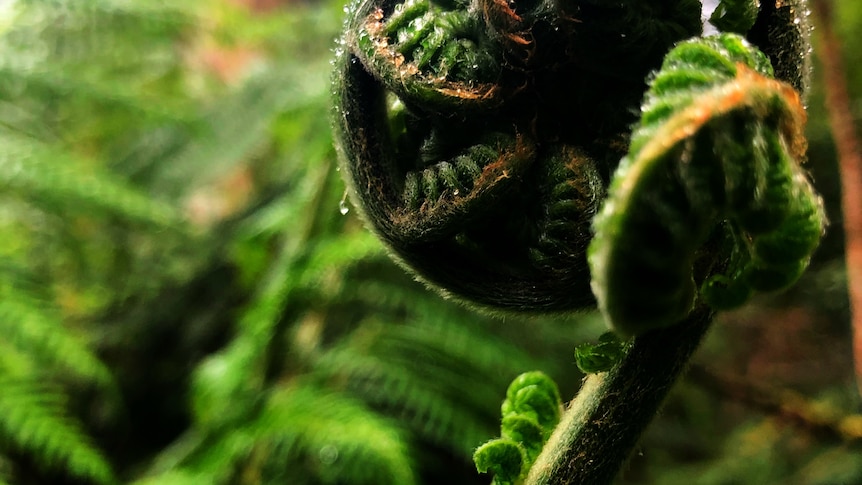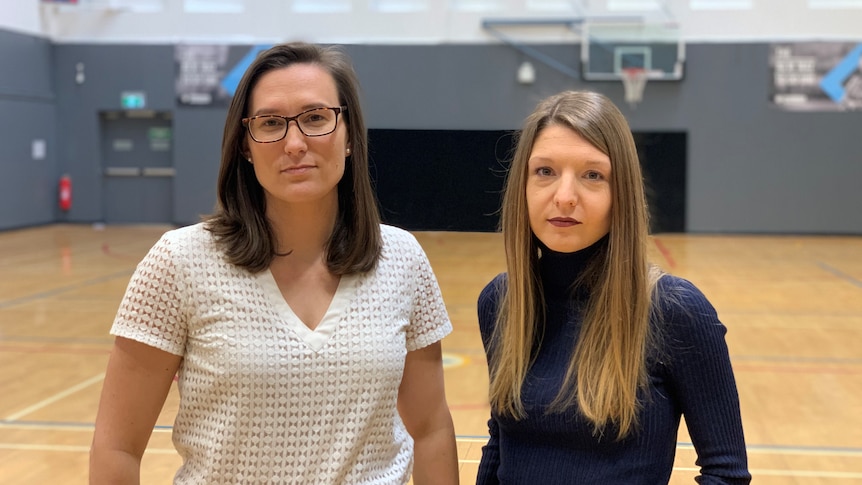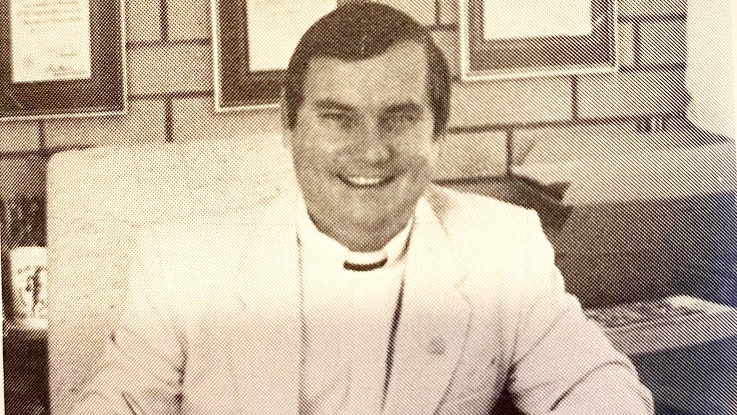Child sexual abuse survivors say a photography course is teaching them to see beauty in the world and help them gain a sense of confidence — all with their smartphones.
After photographer Mitch Dunn taught the six-week course in Ballarat last year, the participants kept in touch, sharing their photos in a private social media group called the Light Seekers.
“The real foundations of photography which support healing are light and perspective, and that can be accessed through any camera,” Dunn said.
“Light is a really beautiful metaphor for healing. When we think about light in terms of photography, when we look at the brightest light source, it creates the darkest shadows.
“When you find yourself in a dark place, when you understand photography, if you turn 180 degrees, you’ll find bright light — it’s also a metaphor for hope.”
Dunn also focused on composition.
“It’s about narrowing your frame, so when things are overwhelming or you’re seeing a lot of negativity, if you can compose what you’re seeing in a certain way, there is always beautiful hope and inspiration somewhere around.”
New friendships without expectations
Abuse survivor Marita described the course as a “powerful experience”.
“It was my first step back into being a bit social. I had 15 months off work related to a court case and a breakdown,” she said.
Learning about composition, grid lines, lighting and portrait photography changed her approach to how she takes photos or uses her phone camera.
“Mitch was really good at getting us to see things from different perspectives; some of mine turned out quite abstract,” Marita said.
She found new friendships with the other survivors where there were “no expectations”.
“It was nice to be in a space that felt safe and supportive of being who you are, not having to justify your behaviour. It felt quite trauma-informed.”
The 43-year-old’s favorite photo is waves crashing over rocks at Johanna Beach on Victoria’s Great Ocean Road.
“It makes me feel peaceful; it sounds weird but it’s a wild and windy place, but whenever I go there I feel really calm because I can feel the sand, the spray of the ocean and the salty air.
“I feel like I’m away from everything and it’s a really calm experience.”
Passion for photography returned
When Drew was seven years old, he had his camera taken off him by the Anglican Church where he was sexually abused in South Australia.
“They told me they were ‘saving it for the best’ but I never got it back,” he said.
Now 57, the Narungga man said a lot of his photos were in black and white at graveyards.
“The black and white represented the type of camera I had taken away and because one of the places I was taken for walks by the reverend was in cemeteries.
“It’s interesting how some habits are still there subconsciously or otherwise, but they can’t hurt me anymore.”
Drew lives with Parkinson’s disease but finds his phone’s in-built stabilization helps him to deal with his hands shaking.
“The course provided so much joy for people who had been left in the dark and we’ve been friends ever since,” he said.
A mindfulness tool
Mel is a carer for her husband — both are survivors of child sexual abuse. She said the biggest thing she learned was the mindful aspect of photography.
“If I feel a little bit stressed or overwhelmed, I just take myself for a walk and take my camera,” she said.
“Taking photos of things I see at that moment can be a tool in moving forward.”
For Mel, the course was the first time she had done something for herself to address her trauma apart from a few counseling sessions.
“It’s a very personal thing. I wasn’t ready to open that can of worms for a long time,” she said.
“But now I love being able to stop myself and be present in that moment when taking photos.”
New views everywhere
Annie was sexually abused as a child, which has caused her to experience low self-esteem and a lack of confidence in trying anything new.
However, the Light Seekers book created with the participants’ photos at the end of the course has her beaming with pride.
“It was such a boost to my self-esteem, something we’d achieved out of such adversity,” Annie said.
“It was me getting some recognition for the sorrow I’d gone through in my life.”
Annie found her favorite topic was taking photos of clouds.
“The clouds were symbolic of my life — the different shapes, some days they’re beautiful and others are just smudges across the sky,” Annie said.
The 63-year-old now sees the world in a new way.
“On bad days now I’ll sit and look at the clouds. My eyes have become like my camera and I’m more cued into looking at things differently.
“Even cracks on the sidewalk, I stop and look at them and take photos of them too.”
.


